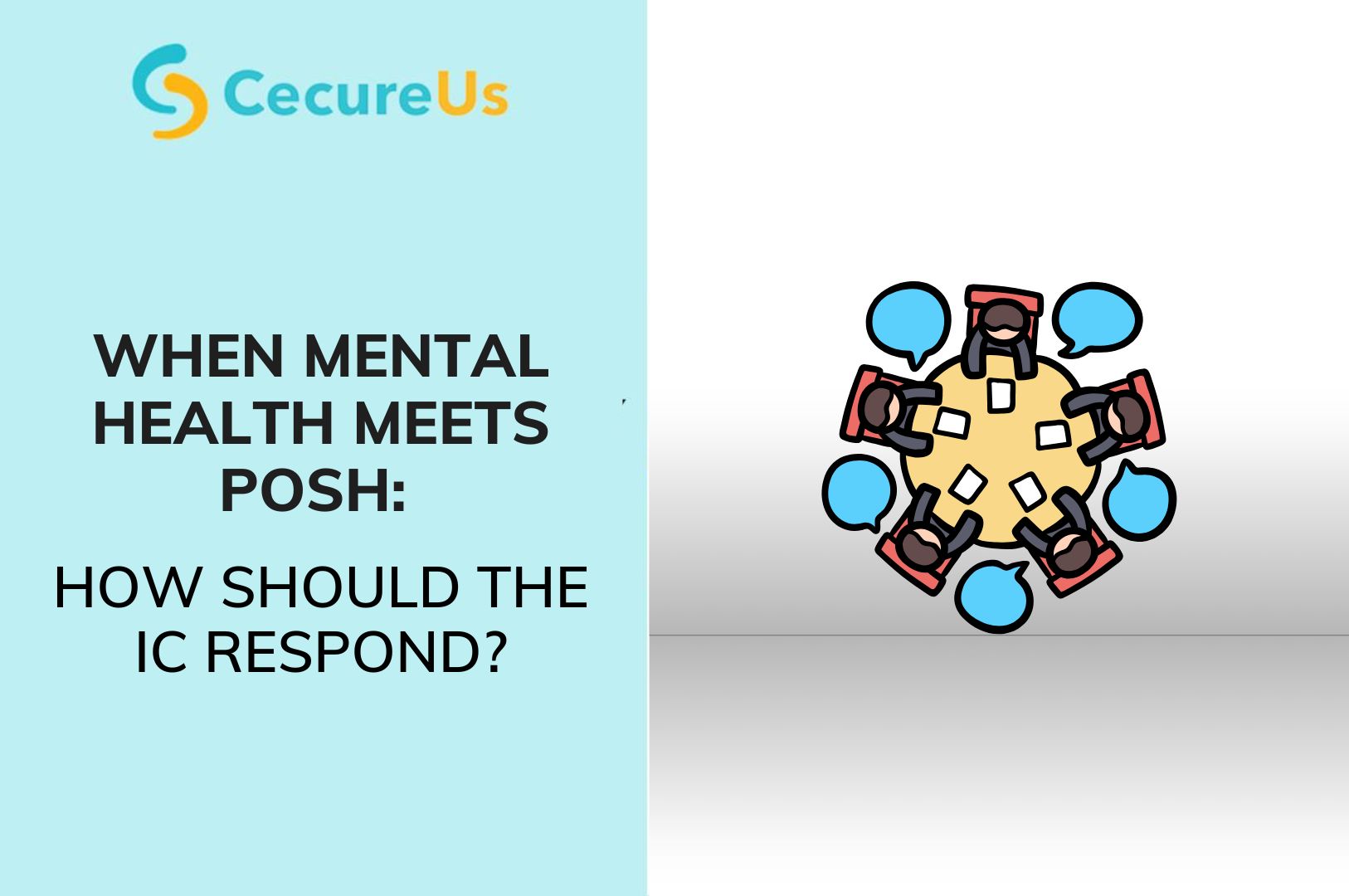
03 Jul When Mental Health Meets POSH : How Should the IC Respond?
Sexual harassment complaints are never simple.
But what happens when a respondent is mentally unfit to participate in the inquiry?
How should the Internal Committee (IC) proceed while staying compliant with the POSH Act—and also being trauma-informed, fair, and inclusive?
Let’s walk through a real-world-inspired scenario and break down the key steps the IC must take.
Case Scenario: When the Accused Is Mentally Unwell
Aarti, a young employee at a tech firm, files a formal PoSH complaint against Rajeev, her senior colleague. She alleges persistent, sexually suggestive jokes and boundary violations.
The IC steps in to initiate proceedings.
But something is off.
Rajeev seems disoriented, confused, forgetful. He breaks down during questioning. His manager shares that he’s battling bipolar disorder and had a relapse recently.
What now?
Understanding Mental Unfitness in PoSH Cases
Mental unfitness can be:
- Temporary (e.g., trauma, panic attacks, depressive episodes)
- Chronic (e.g., schizophrenia, PTSD, bipolar disorder, cognitive impairments)
The IC must tread carefully—protecting workplace safety while respecting individual dignity.
What the POSH Law (and Beyond) Says
While the PoSH Act doesn’t directly address mental incapacity, several provisions support a trauma-sensitive approach:
Section 9(2) – Extension of complaint filing deadline in valid cases
Rule 6(2) – IC must assist if complainant is unfit
Rule 9 – Allows for counselling
Section 12 – Interim relief like leave, transfer
Section 13 – Post-inquiry actions
Also relevant:
BNSS Section 367 – Trial suspension for unsound mind
BNS Section 84 – No criminal liability for acts by unsound individuals
How Can the IC Responsibly Proceed?
Here’s a 6-step playbook for handling mentally unfit parties:
1. Identify the Signs
Delusions. Confusion. Emotional breakdowns. Avoidance. Aggression.
These aren’t just red flags—they’re signals for support, not stigma.
2. Request Medical Evaluation
Before making assumptions, get a licensed psychiatrist’s assessment.
Always obtain informed consent.
3. Adjust the Inquiry Process
- Written responses > verbal interrogation
- Allow support person/guardian
- Use calming, neutral spaces
- Keep language simple
- Shorter, paced sessions
4. Document Everything
From observations to accommodations—track it all. It strengthens the inquiry’s credibility.
5. Maintain Dignity & Confidentiality
No labels. No gossip. No bias.
Be empathetic, but grounded.
6. Suspend or Defer if Needed
If participation is harmful to the individual, pause the process. Resume only when they’re medically fit.
What If Rajeev Is Found Guilty?
Despite his condition, if the IC finds enough evidence, it can recommend action under Section 13:
- Written apology
- Counselling/psychiatric treatment
- Transfer
- Withholding increments
- Termination (in severe/repeat cases)
- Sensitization training
Remember: Mental illness doesn’t excuse harmful behavior, but it requires sensitive handling.
The IC’s Role Is Delicate—But Doable
Balancing legal, ethical, and emotional dimensions is never easy.
But with the right tools, clarity, and empathy, the IC can:
- Ensure justice for complainants
- Respect the mental health needs of respondents
- Preserve workplace safety and dignity
At CecureUs, we guide organizations through complex POSH scenarios. From IC training to real-time case support, our mission is to build workplaces that are safe, inclusive, and trauma-informed.
📩 Reach out if you need help navigating tough PoSH cases involving mental health.
🔁 Feel free to reshare or tag someone in HR or compliance who needs to read this.

